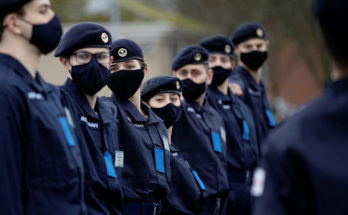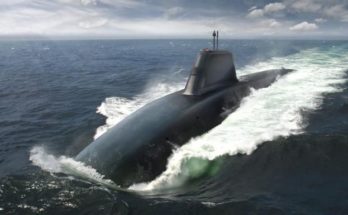
Talk: JMSC and the U.K. Maritime Area: extending our reach and understanding the art of the possible
Interviewer: Michael Gruss, Editor in Chief of Sightline Media Group
Guest: James Morgan, Director of the JMSC
London’s DSEI began on Tuesday, starting off with several events including an interview with Mr. James Morgan, Director of the United Kingdom’s Joint Maritime Security Center (JMSC). The goal of the JMSC, per Morgan, is the creation of shared awareness and coordination between U.K. security agencies operating in British waters. Discussion points centered on the evolving nature of the maritime domain and the JMSC’s role in securing it.
With 95 percent of British trade, including 50 percent of energy and food, coming from the sea, maritime security has always been a focus in the United Kingdom. The modern age is not an exception to that rule. As Mr. Morgan highlighted, the majority of data used for everything from emergency services to airline connections is transmitted not through satellites but by undersea cables. As tensions escalate between the West and rival states, subsea infrastructure, including the vital network of submarine cables, becomes an increasingly valuable target. The 2022 Nord Stream pipeline attack, as Morgan pointed out, demonstrated the potential damage of marine sabotage, something which if pursued en masse could produce far more devastating results.
The JMSC head expressed particular concern for interference in Britain’s overseas territories, including illegal fishing possibly tied to China’s 3,000-boat distant water fishing fleet. As a maritime nation with a variety of remote possessions, Britain must take seriously threats to the fishing industry, upon which some of its smaller territories are reliant.
Furthermore, as climate change worsens, rising sea levels and temperatures will put more pressure on the British security apparatus, offering opportunities for rivals to advance their agendas in the maritime domain. Mr. Morgan, citing admittedly anecdotal evidence, stated that there have been observed correlations between sea temperatures rising and lower fishing yields, and concurrent rises in armed crime at sea.
When asked about the potential value of artificial intelligence and machine learning to the JMSC, Mr. Morgan was forthcoming in his belief that these technologies were not “the panacea to all our ills.” At present, he suggested these tools are not evolved enough to predict the threats posed by innovative enemy states and organized criminal gangs.
Mr. Morgan finished by attesting to the center’s commitment to facilitating communication and collaboration among the security and safety components of the British state at sea. He pointed to the increasing workload and the demand for the agency as a testament to the efficacy of its mission. As technology advances and new threats emerge, the need for synergy and immediate environmental awareness has never been so pressing. The establishment and maintenance of assets like the JMSC will be critical to ensuring a culture of information sharing and tactical efficiency in the maritime domain. In the information age, domain awareness is a strategic asset that cannot be overlooked.
Tom Freebairn is a weapons analyst with Military Periscope covering naval affairs and maritime systems. He pursued an undergraduate degree in International Relations and Modern History, followed by a master's in Middle East, Caucasus, and Central Asia Security Studies from the University of St. Andrews. His master's thesis focused on the relationship between oil and separatist politics in Northern Iraq. Tom's interests include the politics of energy, ethnic separatism, the evolution of naval warfare, and classical history.




